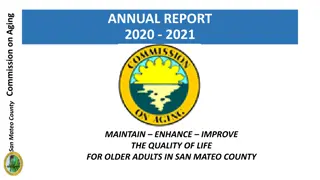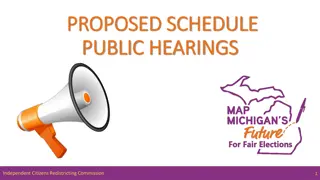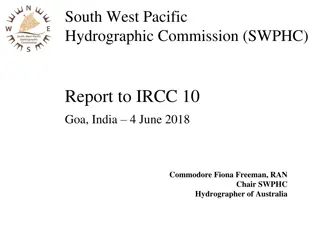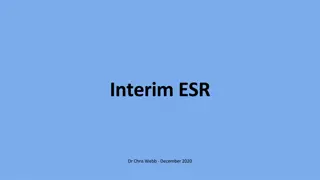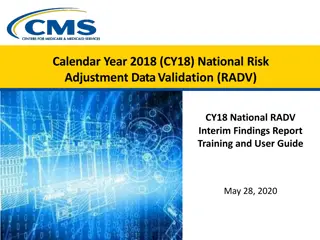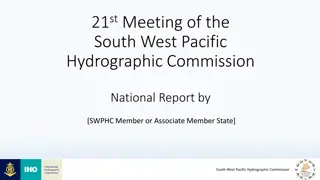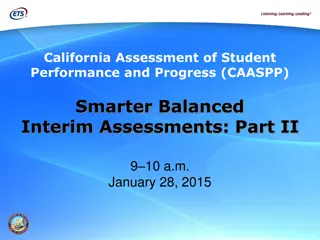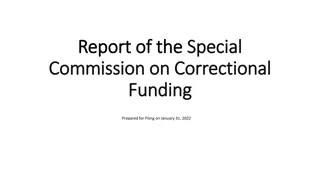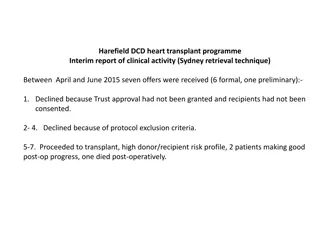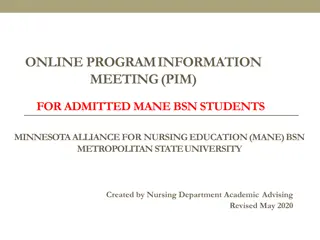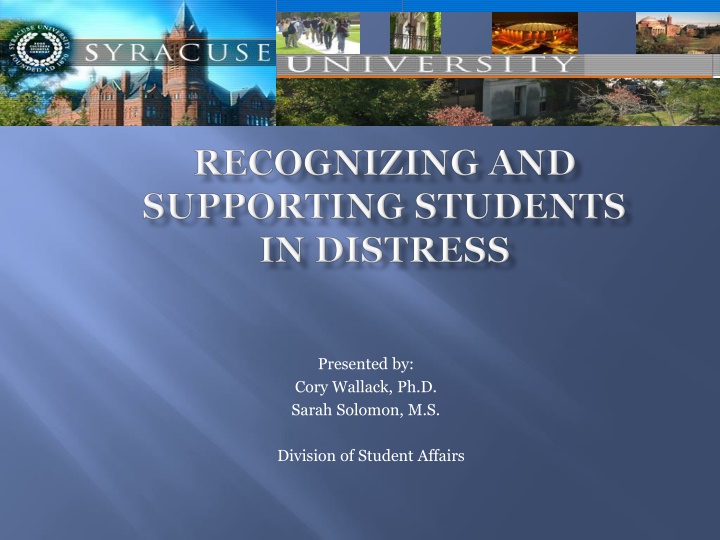
Non-Metropolitan Commission Interim Report on Economic Growth and Public Services in England
The Non-Metropolitan Commission, established in April 2014, focuses on economic growth and public services in non-metropolitan England. The commission aims to stimulate regional economic growth, create job opportunities, and improve the quality of life for residents. Key areas of interest include decision-making processes, collaboration among public sector organizations, training for necessary skills, and transport investment. The commission welcomes input from various sectors and continues to gather evidence for its research and future recommendations.
Download Presentation

Please find below an Image/Link to download the presentation.
The content on the website is provided AS IS for your information and personal use only. It may not be sold, licensed, or shared on other websites without obtaining consent from the author. If you encounter any issues during the download, it is possible that the publisher has removed the file from their server.
You are allowed to download the files provided on this website for personal or commercial use, subject to the condition that they are used lawfully. All files are the property of their respective owners.
The content on the website is provided AS IS for your information and personal use only. It may not be sold, licensed, or shared on other websites without obtaining consent from the author.
E N D
Presentation Transcript
Presented by: Cory Wallack, Ph.D. Sarah Solomon, M.S. Division of Student Affairs
Trends in college mental health Overview of Counseling Center services Overview of Student Assistance services Identifying and connecting with the Distressed Student Making a referral
Increase in reported mental health concerns High prevalence rates of alcohol/drug abuse Increased efforts to support students impacted by sexual and relationship violence Students in need of services often go unidentified Impact of active school shootings Campus Community responsibility, BCC
Overwhelming demands Connected-Disconnected generation Poor coping skills Lack of distress tolerance Impact of global events Lack of experience/comfort as to when and how to use to use available support services
Individual & group counseling Alcohol & other drug counseling Sexual and Relationship Violence Response Team 24- hour crisis intervention Consultation to parents, faculty, staff & students Referrals to mental health services Outreach/training to SU/ESF community Mindfulness Based Stress Reduction (MBSR)
Central helping resource for campus community Addresses issues in such areas as: Psychological health Physical health Sexual and Relationship Violence Victimization Relationship concerns Eating/body concerns Social adjustment
Case management Referral to on and off campus resources Medical leave of absence/readmission Absence notification Student advocacy, follow-up, and support Consultation for faculty/staff/parents
Trauma Loss of a friend or family member Victimization Natural Disaster Health concerns Financial difficulties Personal relationship stressors Academic struggle
Changes in appearance Exaggerated emotions Unusual behavior Social isolation and withdrawal Substance abuse Academic issues
Listen and connect Look for warning signs Be prepared to discuss specific concerns/statements Consult with Counseling Center and Office of Student Assistance as needed Refer for assistance and/or assessment In some cases, immediate action is warranted
Suicide is preventable Most suicidal individuals give definite warnings of their suicidal intentions Asking if someone is thinking about suicide does not increase the risk Suicide occurs across all age, economic, social, and ethnic boundaries
Homicidality Students who are indicating thoughts about causing the death of another/others Psychosis Students who have a gross impairment in their reality perception
First, ensure safety for yourself and the student. Intervene. Take him/her seriously. If you are concerned the student needs medical intervention call Public Safety immediately at 443-2224 (711 on campus). If you are concerned about a threat to someone else, contact Public Safety immediately at 443-2224 (711 on campus). If you are concerned about suicidal thoughts or comments, call the Counseling Center at 443-4715. Unless safety is compromised, please stay with the student until the student gets assistance.
REFER: When you are doing more counseling than advising The problems or requests made are outside the scope of your role with the student When you feel that the issue with which the student is dealing could benefit from working with a mental health professional CONSULT: Anytime you are not sure how to handle a situation or approach a student The student keeps coming back and has not followed through with your referral
Be helpful and supportive Express your concerns directly to the student Encourage the student to call and make his or her own appointment In crisis situations walk the student to the appropriate office or call to consult while with the student Instill hope that help is available and effective Don t avoid the situation, promise privacy, or offer more help then you are able to provide
If appropriate, check in with the student after the situation and ask how the student is doing. If appropriate, ask the student if he/she followed through with the referral. If there is new information, follow-up with appropriate office.
When supporting a distressed student: Notice Connect Communicate Be familiar with emergency services before an urgent situation arises: Counseling Center services Public Safety Emergency Medical Services Office of Student Assistance
Syracuse University Counseling Center 200 Walnut Place 315.443.4715 Syracuse University Office of Student Assistance 306 Steele Hall 315.443.4357 studentassistance@syr.edu


